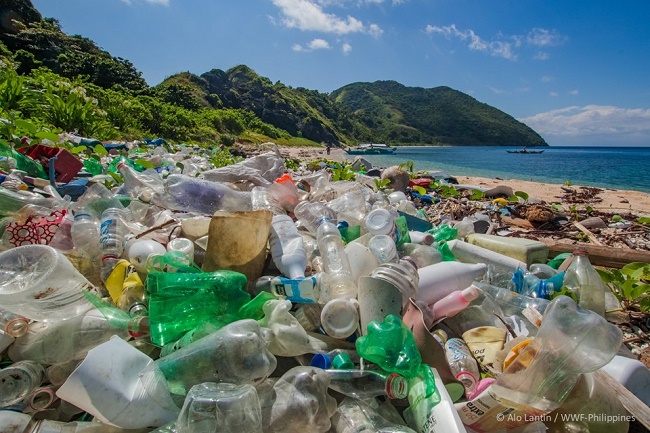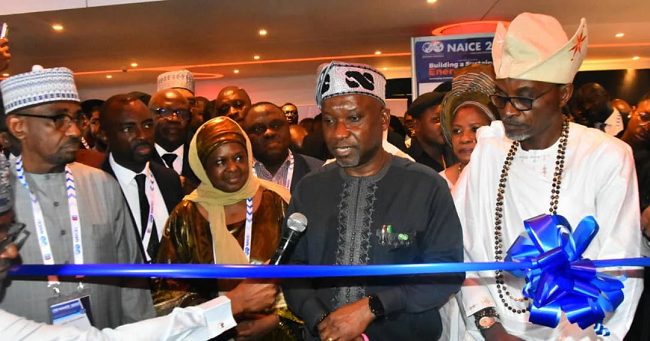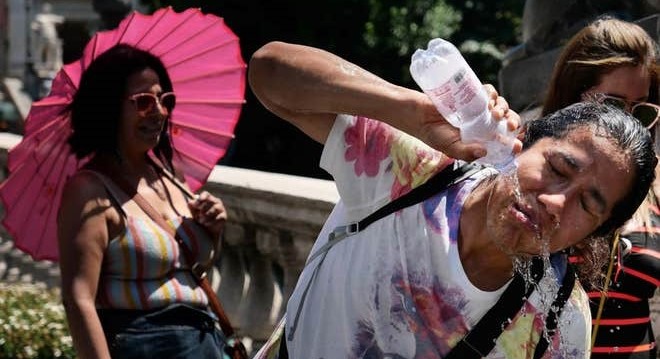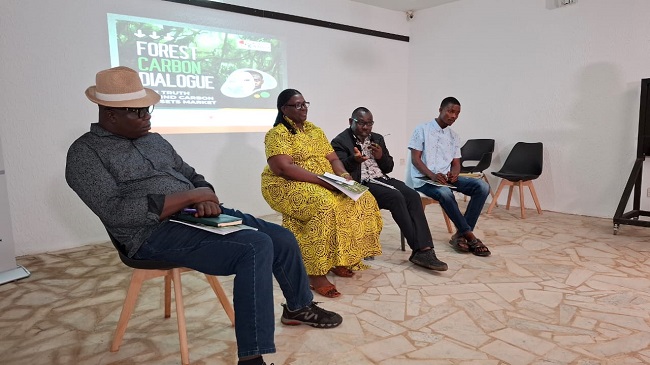Who will restore Warri back to its glorious days? A city that was once the pride of all Wafarians, is now a shadow of itself, rusty and reeking with aroma of poverty occasioned by systemic decline with people cocooned in deprivation and squalor. Warri is allusively known as Wafi, making the people and residents of the city identified as Wafarians.
I was close to tears during my recent visit where I toured the length and breadth of Warri, covering Deco Road, Okumagba Avenue, Okere Road, McCiver, Odion Road, Market Road, Cemetery Road, Iyara, McDermott Road, Warri-Sapele Road, Upper and Lower Erejuwa, Ajamogha, Esisi, and Warri Port. I stayed for over two months, the longest since my relocation to Lagos in 1984.
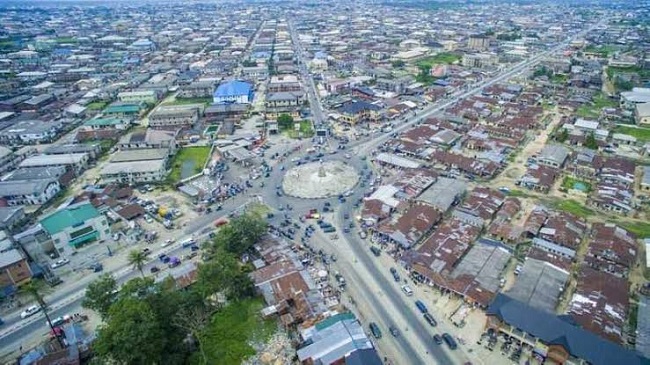
All I saw was a distressed and a dying city with shattered dreams, shrinking hopes, and diminished opportunities induced by capital flight and economic disorders. It is a metaphor for youth unemployment, dwindling aspirations, and social chaos, where people just labour under profound deficit constrained by rationed resources, owing to lack of fresh capital from investors.
Indeed, Warri is choking from severe economic dehydration, with all available spaces in front of buildings converted into small shops where people engaged in petty trading and POS businesses, making the whole streets look like mini-markets. This is further worsened by the large number of keke tricycles almost outstripping the populace with attendant heavy noise emission. Even the dead have no peace in Warri as the entrance to the only cemetery in the town has been overtaken by petty traders, and keke tricycles mechanics, leaving a small gate for entry.
How did such a once vibrant cosmopolitan city that attracted global presence, including investors, and played host to several notable national and international events, degenerated into a rural enclave with dilapidated structures? What went wrong, and who created the mess that has betrayed the values and ideals that once held Wafarians together in unity and love?
While it is easy to link Warri’s stunted growth to the unending ethnic rivalry among the Itsekiris, Urhobos and Ijaws, for posterity, it is also important to specifically identify those, whose actions, directly or indirectly, have contributed to the city’s appalling condition, which has brought shame and embarrassment to the collective psyche of Wafarians.
First, the opposition of Warri as capital of Delta State at the creation by Itsekiri leaders, led by His Royal Majesty, the Olu of Warri, Atuwatse II, have done more harm to the general good of Warri, and setting the city backward. The deficit outcome has made the motive designed to protect the Itsekiri’s ethnic interests pale into insignificance. What is the gain of this stand within the context of development, other than fear of Urhobo domination, and the need to thwart it? This was an obvious delusion, and no amount of rationalisation can justify the mess that has eclipsed Warri. It was a miscalculation. Sacrificing the city’s progress on the altar of narrow ethnic interest was a tragedy.
Unfortunately, former military President, Ibrahim Babangida (IBB), further complicated the matter when he failed to demonstrate objective governance, taking advantage of the Itsekiri’s disapproval of Warri as capital to illogically site the capital of Delta State in Asaba, hometown of his wife. It was the height of absurdity in decision making, and a study in bad leadership. Had the ethnic trust deficit in Warri been bridged and the ethnic groups unite to demand Warri as capital, the city would have been better transformed with infrastructural advantage typical of a modern capital city, attracting foreign investors, to the benefit of all.
Second, the unending contention over ownership of Warri township among Urhobos, Itsekiris and Ijaws, over the years, has continued to promote ethnic animosity and discord, contributing immensely to the backwardness of the city. Those who started this tussle have since passed on, without adding any value to their respective ethnic groups. Sadly, this bitter ethnic rivalry is being passed on to succeeding generations, who have foolishly continued in this trajectory to spread hate, rather than live in harmony as neighbours, to achieve enduring peace and development in Warri.
It should be noted that these ownership claims are exercise in futility, as either of these ethnic groups can practically dislodge one another to take physical possession of any habitation. For example, just as it is practically impossible for the Urhobos to evict the Itsekiris from Okere, it is also unrealistic for the Itsekiris to dispossess the Ijaws of Ogbe-Ijaw land.
And so, brandishing colonial and post-colonial court judgements and papers as proof of ownership, is insignificant and waste of energies. The three ethnic groups must bury their pride and ego, and live together peacefully as Wafarians, bound by common cultural affinity, so that Warri can experience peace and progress again.
Third, ethnic leaders that directly or indirectly encourage and incite their youth to resort to violence, and sometimes, carry arms to threaten, destroy or kill their neighbours over land, have nothing to gain other than misery and poverty. Ironically, it is the innocent children of the poor that are used for such senseless conflict, while the children of the rich enjoy comfort in safe haven in faraway Lagos, Abuja, London, USA or Canada.
Besides, the parents of most of these gullible youth being used to perpetuate these crimes, have no ancestral root, and properties in Warri township. Destruction and mayhem only leave in their trail, economic decline, unemployment, anguish, suffering, hardship and poverty, as investors will flee with their capital from a hostile environment, as shown with the exit of numerous companies in the city.
Lessons ought to have been learnt from the Ijaw-Itsekiri conflict which lasted from 1997 to 1999 over siting of Warri South West Local Government Area Headquarters. At the end of that war, both parties counted only losses, no benefit, no value addition, and no reward. Regrettably, companies that were hitherto sources of sustained fresh capital in Warri, relocated to other cities, bringing lack and despair to Warri and its environs. There must not be a repeat of such a senseless ethnic war, as Warri may never survive a second experience.
The effect of the Ijaw-Itsekiri fight led to exit of companies like Pan Ocean, Schlumberger, Halliburton, Shell Petroleum Development Company, (SPDC), ELF, Conoco-Phillips, Agip, WEAFRI, NISSCO, Globestar, McDermott, DBN, WESCO, Hercules Offshore Nigeria, Nigeria Dredging & Marine, LAMNALCO, and Dunlop. Others include Saipem, Seismograph Services Limited, Snamprogetti, Dowell, Anadrill, Baroid, Santafe, Oceaneering, Kingsway, Leventis, West Minster Dredging, John Holt, SCOA, Glorylux, United Afrian Compay (UAC), Mandillas, Nestoil together with maritime and shipping firms located inside the Nigerian Ports Authority, Warri.
The companies not only left with their investment; they also left behind high unemployment rate of approximately 80 percent in Warri. Except for Chevron Nigeria Limited, and perhaps, recently, Tantita Security Services Limited, through which fresh funds are being injected into the economy of Warri, the condition of the town would have been catastrophic.
Fourth, those that engage in collection of “deve” (development) fee as precondition for commencement of project, and also, who forcefully demand employment and contract slots from companies, have also contributed to the poor condition of Warri. By their actions, companies, including small business enterprises and individuals, are frustrated and discouraged from establishing businesses in the city, thereby compounding the unemployment burden.
Fifth, the non-operational Warri Port has also added to the economic hardship in Warri. Ocean-going vessels that used to berth, servicing business interests in neighbouring Effurun, Udu, Benin, Onitsha, Asaba, and the environs, are no more. This is further worsened by the collapse of adjoining companies like the Delta Steel Company, Owvian-Aladja and Warri Refinery and Petrochemical Company, Ekpan, which has taken a huge toll on Warri life.
It is therefore imperative for the ethnic groups to redirect their energies to promote peace and unity, in order to restore investors’ confidence. The Ijaws, Urhobos and Itsekiris’ leaders can also leverage their common cultural ties, as expressed in food, clothes, trade, history, and festivals to boost Warri’s economy. For example, Warri cultural celebrations like Agbassa Juju (Idju Owhurie Festival) and Okere Juju (Awankere Festival) can be bolstered and turned into major tourists’ destination, as part of strategy to make Warri great again.
By Dr. Mike Owhoko, Lagos-based public policy analyst, author, and journalist. He can be reached at www.mikeowhoko.com, and followed on X {formerly Twitter} @michaelowhoko

